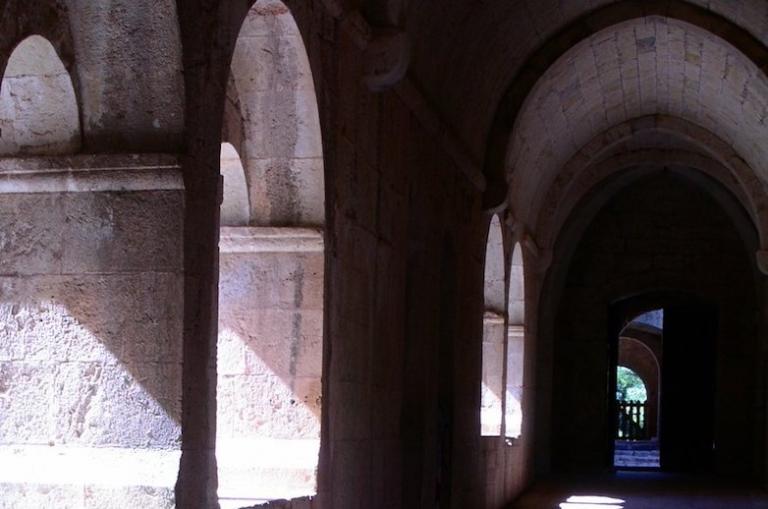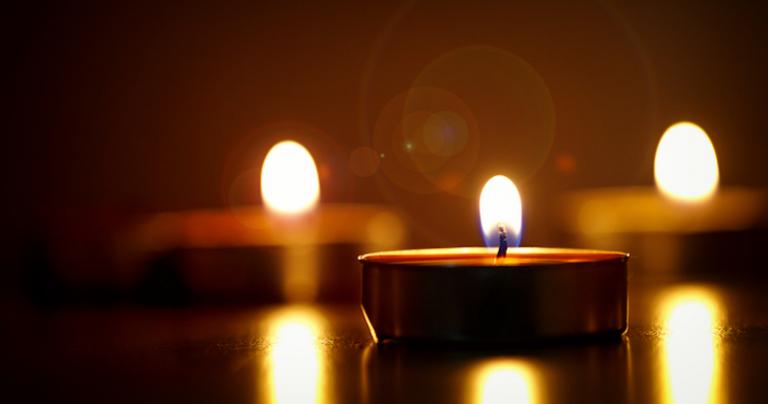
I can’t tell you what exactly Trappist monk and spiritual author Thomas Merton would do or say in an election year. However, based on his journals and letters, generally from the late 1950’s and early 1960’s, I can form a few conjectures that may help us think about how a Christian spiritual master envisioned the use of politics and government for the benefit of people who were created in God’s image.
Far from seeing his commitment to prayer and solitude as a barrier to political involvement or engagement in the big issues of his time, Merton worried that his monastic vocation was in conflict with his social calling as a Christian. In my forthcoming book, Flee, Be Silent, Pray, I highlight how this showed up when Merton wrote to Dorothy Day.
“The tension over silent prayer and involvement in the day’s issues weighed so heavily on Merton’s mind after his Louisville epiphany that he wrote a candid letter to Catholic social justice worker Dorothy Day. In it he lamented the resistance of his superiors to his poems and articles addressing nuclear war and other urgent societal issues in the 1960s. ‘I feel obligated to take very seriously what is going on, and to say whatever my conscience seems to dictate,” Merton wrote. ‘I sometimes wonder if, being in a situation where obedience would completely silence a person on some important moral issue on which others are also keeping silence—a crucial issue like nuclear war—then I would be inclined to wonder if it were not God’s will to ask to change my situation’ (Echoing Silence, 179–180).”
He added:
“’As for writing: I don’t feel that I can in conscience, at a time like this, go on writing just about things like meditation, though that has its point,’ he said. ‘I think I have to face the big issues, the life-and-death issues: and this is what everyone is afraid of’ (Echoing Silence, 180).”
In the Cistercian order, where obedience to superiors was essential, Merton pushed the limits as far as he could. His journals reveal that he envisioned a broad range of concerns for the monastic vocation:
“Hence my obligation to study questions of history, economics, etc., in so far as I can. This obligation is by no means in conflict with my ‘contemplative’ vocation. Until my “contemplation” is liberated from the sterilizing artificial limitations under which it has so far existed (and nearly been stifled out of existence), I cannot be a ‘man of God’ because I cannot live in the Truth, which is the first essential for being a man of God. It is absolutely true that here in this monastery we are enabled to systematically evade our real and ultimate social responsibilities. In any time, social responsibility is the keystone of the Christian life” (The Intimate Merton).
Merton didn’t live at a time when climate change was a political issue, but he was deeply invested in speaking against the threat of nuclear war and the root causes of belligerency toward people in other nations. I can hardly imagine him being silent over such a drastic threat to the future of so many people.
His letter to James Baldwin and his extensive writings on race in Seeds of Destruction reveal a Catholic priest who was deeply aware of the racial situation in America at a time when many Catholics were uninvolved or calling for moderation or “slow progress” (which was really not progress at all). Merton wasn’t sitting out the civil rights movement, using his articles and books to reach out to Christians who were, at best, indifferent to a cause he viewed as critically important for seeing the image of God in others.
This Christian view of political action is threaded throughout his writing. Thomas Merton saw that political action could be used to either elevate or degrade people who are made in the image of God. The presence of Christ in all people meant that politics should never be used to deprive people of their wages or of enjoying the fruits of their labor. He wrote in Conjectures of a Guilty Bystander:
“Christian social action is first of all action that discovers religion in politics, religion in work, religion in social programs for better wages, Social Security, etc., not at all to ‘win the worker for the Church,’ but because God became man, because every man is potentially Christ, because Christ is our brother, and because we have no right to let our brother live in want, or in degradation, or in any form of squalor whether physical or spiritual. In a word, if we really understood the meaning of Christianity in social life we would see it as part of the redemptive work of Christ, liberating man from misery, squalor, subhuman living conditions, economic or political slavery, ignorance, alienation” (Conjectures, 76).
Merton also recognized that citizens voting in such a democracy where so many of the poor and vulnerable had a great deal on the line needed to be thoughtful and well-informed. He worried that mass media in the 1960’s had already become a kind of affliction that prevented deep thought and clear decisions.
“The greatest need of our time is to clean out the enormous mass of mental and emotional rubbish that clutters our minds and makes of all political and social life a mass illness. Without this housecleaning we cannot begin to see. Unless we see we cannot think” (Conjectures, 72).
What would Thomas Merton make of our social media or partisan news sites? He gives us a pretty good idea a few pages later:
“Democracy cannot exist when men prefer ideas and opinions that are fabricated for them. The actions and statements of the citizen must not be mere automatic ‘reactions’—mere mechanical salutes, gesticulations signifying passive conformity with the dictates of those in power.
To be truthful, we will have to admit that one cannot expect this to be realized in all citizens of a democracy. But if it is not realized in a significant proportion of them, democracy ceases to be an objective fact and becomes nothing but an emotionally loaded word.” (Conjectures, 96)
As I consider who I’ll vote for in coming elections, Merton’s wide view of Christian social dignity and the presence of God in all people offers a compelling path forward. His wariness of mass media is a helpful warning in today’s social media attention economy that thrives on outrage and fear.
We can charitably debate which policies best recognize God-given dignity and assure human flourishing, but we cannot overlook God’s creative touch in others. We can’t let fear and outrage blind us to the suffering of others and the policies that could help them.
Policies and laws can either add to detract from human dignity. Too often, a law that is billed as guaranteeing free enterprise and the freedom of businesses does more to ensure the rights of corporations and businesses than to ensure the freedom and dignity of those who work within them.
Thomas Merton could not let his calling to solitude keep him from engaging in the big issues of his time and speaking for the dignity of God in others, and his views on Christian social action may be one of the guides we need the most in the days to come.












